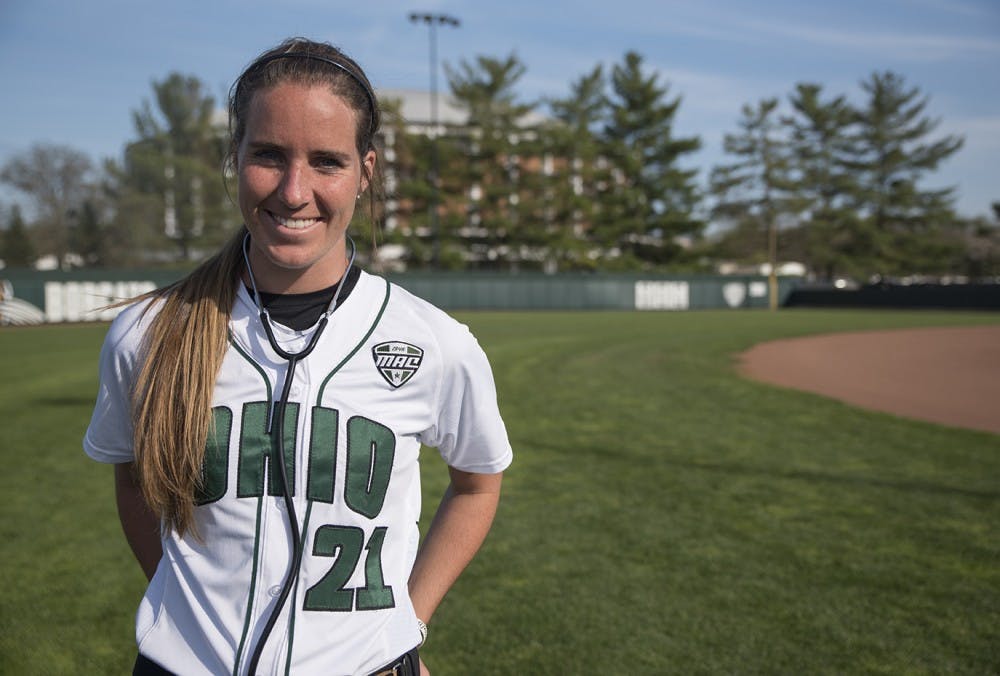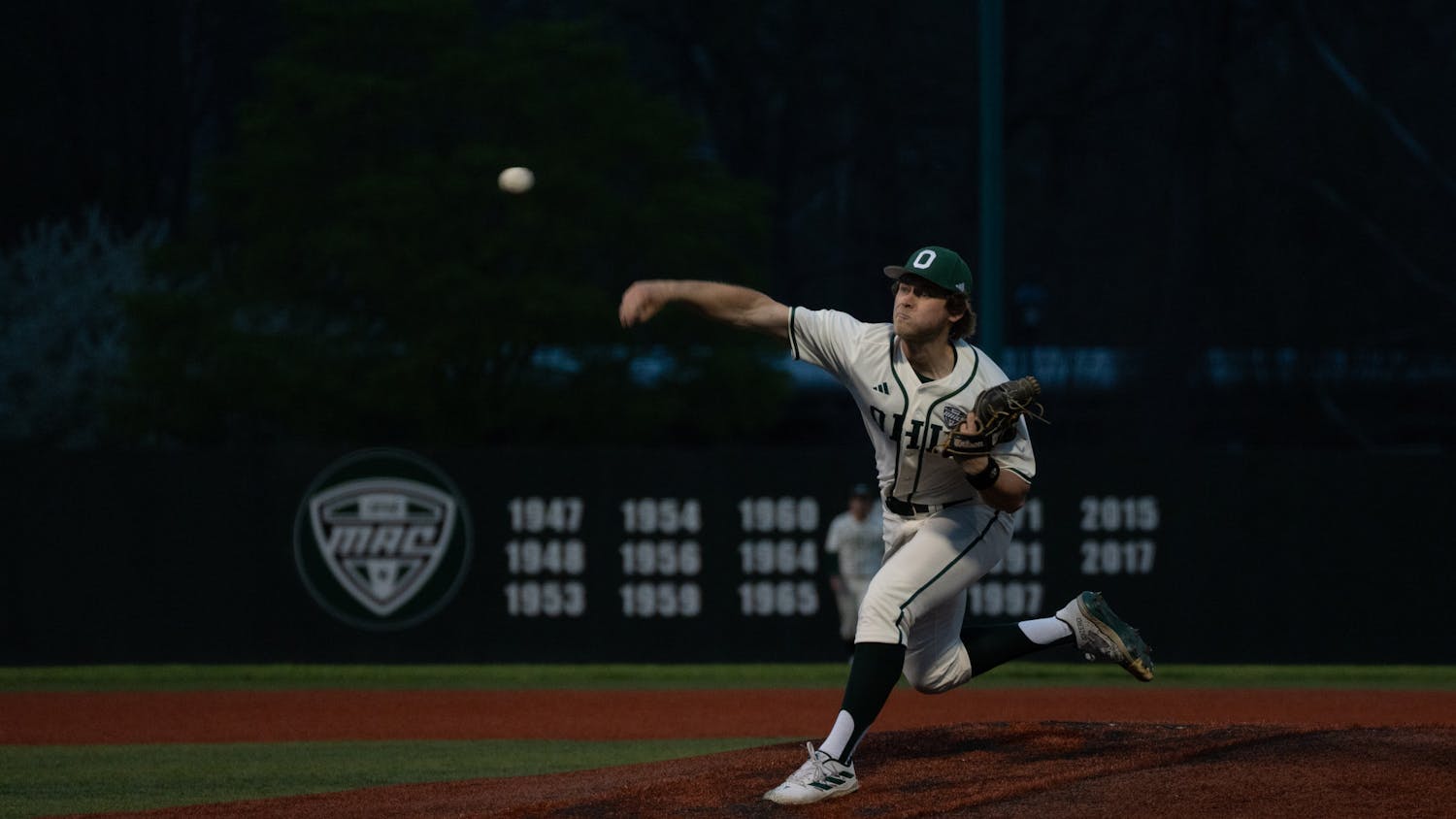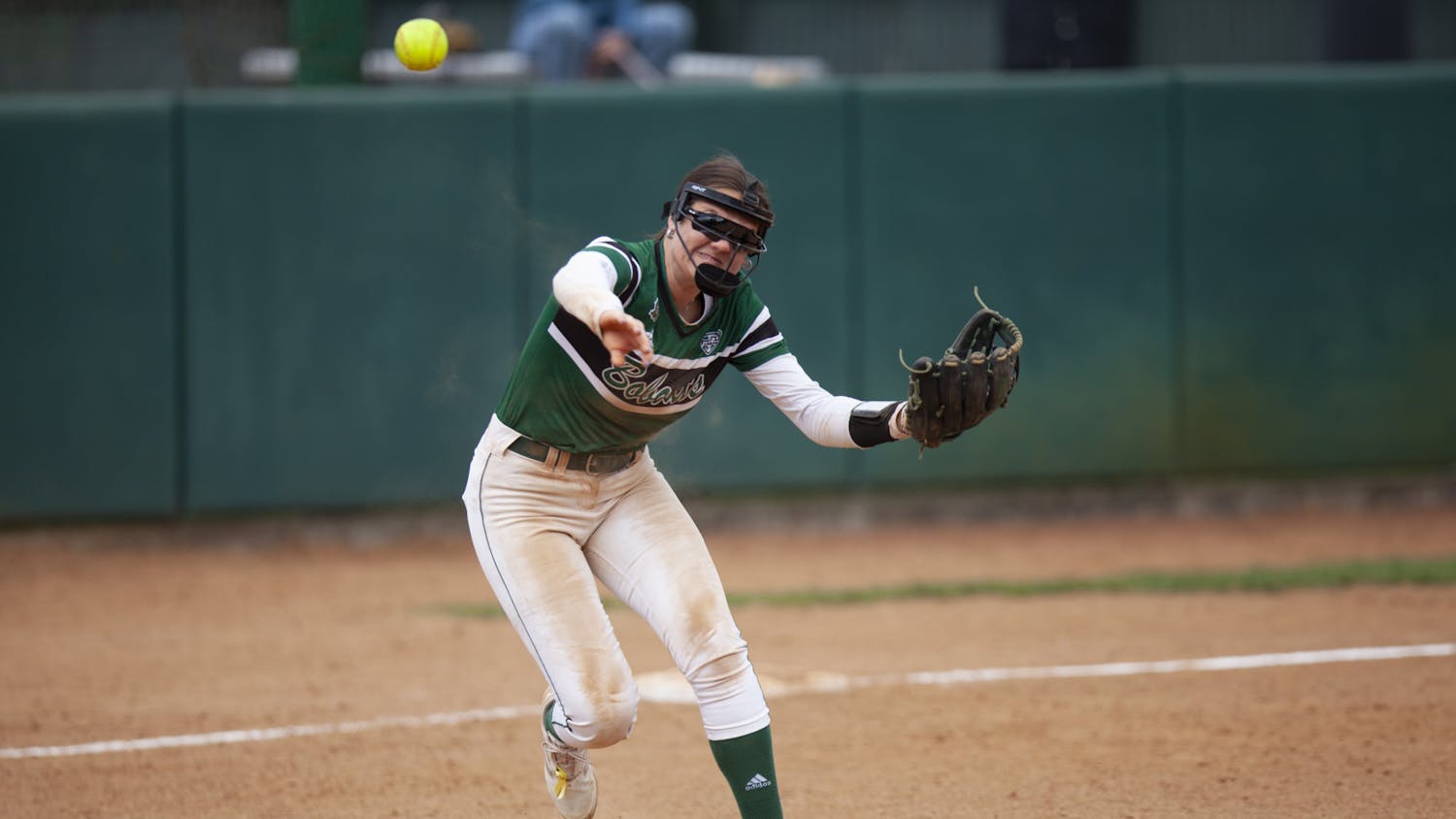Savannah Jo Dorsey was in pain.
She redshirted in her junior season in 2015 due to a back injury, her third significant injury since coming to Ohio. But the pain persisted.
It spread from her lower back to her shoulder. From her shoulder to her upper back.
Watching her pitch last season, it wasn't clear she was hurt. She led the nation in strikeouts and brought the Bobcats within a game of her second Mid-American Conference championship.
But toward the end of the season, even the simplest of daily tasks ailed her.
“I had anxiety breathing,” she said. “I felt like I was in a box all the time.”
Her mother, Rona, hated knowing her daughter was in such pain.
They shared passion for softball, and it brought them closer together. Rona also pitched for the Bobcats from 1981-1984.
But watching her daughter struggle was too much, enough to the point where she wondered if playing another year was the best thing for her daughter.
“You know, Sav,” she said. “You don’t have to do this. You don’t have to keep playing.”
Savannah considered it. There were times when she thought playing another season might not be worth putting her body through more punishment.
She had set multiple school records. She had won a MAC championship. She’d had a good run.
Then the Bobcats lost in the conference championship game to Miami last season. And with the loss, the doubts Savannah had about continuing her career disappeared.
“I was like, yeah, I’m not leaving in second place,” Savannah said. "I had to come back."
“I know,” Savannah then told her mother of ending her career. “But I could never not do it.”
***
Savannah was frustrated.
She couldn't get her curveball to break.
Savannah was around 10 years old and had just started to play softball for a travel team, the Ohio Dragons.
In her first season with the team, she remembers pitching just 12 innings the entire summer.
She was skinny and had to look up at most of her teammates. She could put more spin on the ball than most kids her age, but she just couldn’t make the ball move.
Savannah was a shy kid, too. So shy, in fact, that her parents had her hearing tested to make sure she understood when people were speaking to her.
But that would all change.
Her first instructor was her mother. Growing up, Savannah saw pictures around the house of her mother pitching for the Bobcats. She would try on her mother’s Ohio letterman jacket, too.
In her time at Ohio, Rona (then Rona Huber) earned 30 wins and sported a career earned run average of 1.65, both good for top 10 all-time. In Rona's senior season, she pitched for a 0.97 ERA, good for fourth in program history.
Rona made herself available to Savannah whenever they both had free time. Some nights, Rona wouldn’t return home from coaching high school softball until 10 p.m.
That didn’t stop her from catching for her daughter, however. Savannah and Rona would go into a church nearby their house and pitch in the hallways.
“I probably caught her every day,” Rona said.
Savannah and her mother nicknamed the curveball “PH,” short for “pitch from hell.”
There were days where Savannah would become too frustrated with herself and refused to throw the PH anymore. Rona decided to enlist additional help, and at an Ohio State softball camp, she found it.
From Grove City, just 11 miles from Ohio State's campus, Savannah often attended Ohio State softball games with her mother. She had seen Kristi Devries pitch several times in person.
After Rona approached Devries at the camp, she became Savannah’s personal instructor. It became Devries’ job to coerce some movement out of Savannah’s curveball.
They tried everything — including holding a broomstick behind Savannah’s back so she wouldn’t swing her arm too far backward. Even with Devries, Savannah would have moments where she couldn’t throw the PH out of frustration.
But she didn't give up. The pitch overwhelmed her at times, but she entered each new session with heightened determination.
Devries could see how badly Savannah wanted to improve. Devries had faith that Savannah would make the ball break.
“I could always tell that she had worked on what we talked about,” Devries said. “When you have a kid where you can see a difference from week to week, you know they’re gonna make it.”
It took Savannah about two years to trust her curveball, but once she did, the PH became her "out" pitch. As her confidence in her pitching grew, her self-confidence as a whole grew with it.
The quiet girl who once needed her hearing tested began to command the spotlight. Her coaches started throwing her in must-win games. And she started winning them.
“Once she started taking off and started pitching more, she couldn’t be that (shy) kid anymore,” Rona said.
In high school, she was the only pitcher on her team. She shared the spotlight with nobody, but she owned it nonetheless.
In her four years at Central Crossing High, she never posted an earned run average above 1.00. And she caught the eye of Ohio coach Jodi Hermanek.
Savannah verbally committed to Ohio after her freshman year of high school.
And on Savannah's first day of practice, Hermanek was beside herself with excitement.
“I couldn’t wait for that day,” Hermanek said. “She was a program-changer.”
The program changed quickly. Before Savannah’s arrival, the Bobcats hadn’t played in an NCAA regional game since 1995. Once she arrived, she led them to a regional birth in her second season, 2014.
Besides her injured season, the Bobcats have been in contention for MAC championships since the second Savannah stepped on campus. She's stifled every conference opponent’s offense at one time or another.
Her most recent victim: Kent State.
Though the Bobcats lost, Savannah allowed just one run in 11 innings while earning 22 of her 33 outs via strikeout.
“She’s just nasty,” Kent State coach Eric Oakley said. “She’s filthy, unfair in some cases.”
When she wasn’t stifling MAC offenses, though, she was putting the conference on the map. Last season, she recorded a victory over top-10 Kentucky. This year, she took No. 15 Tennessee to extra innings.
She’s terrorized MAC offenses for four years now. But as her time in the MAC comes to a close, even her opponents are sending her off warmly.
“I hope to see her throw pro,” Oakley said. “There’s nothing that would make me prouder than to see a MAC pitcher out there throwing pro.”
***
Savannah was waiting for a call.
She was missing a March 31 game against Western Michigan for an opportunity to move on from Athens and was told she would know her fate by Monday morning. But she had heard from friends that she would know Friday evening if she made it.
On the nearly 300-mile drive to rendezvous with her teammates in Kalamazoo, neither Savannah nor her father spoke much. They were too nervous.
Then her phone rang.
Savannah experienced multiple fake-outs: A spam email notification, a call from the bridal shop about her sister’s dress and a call from Savannah's fiancé.
Finally, the phone rang for the fourth time. Savannah recognized the area code, and she knew immediately.
She’d made it.
Savannah was so taken aback that she couldn’t find the words to respond. The person on the other line needed to tell her again to be certain that she understood.
She knew she would be moving on from NCAA softball. But she also learned she would be moving on from Athens, too, though not very far away.
That day, Savannah learned she would be moving to Dublin next year. She had been accepted into the Heritage College of Osteopathic Medicine.
It was both an exuberating and sobering moment for those around her. On one hand, she was seeing a childhood dream come true.
Savannah had aspired to work in the medical field since she was a toddler. She started with a passion for animal care but changed her mind after shadowing a hospital last summer.
On the other hand, she had to let go of the sport which had brought her so much joy, the game that coaxed her out of her bashful shell and put her name next to her mother’s in the Ohio history books.
She was good enough to pitch at the next level. She and everybody around her knew it.
“If she could do both, she would,” Rona said.
But she couldn’t.
She was forced to choose between her two passions, and she couldn’t split her energy between the two anymore.
On that March 31 car ride, her decision was finalized.
She pushed through her own pain, but healing the pain of others lured her away.
“There’s no half in, half out,” Rona said. “She’s got a drive to be in the medical field, so that’s where she’ll go.”






